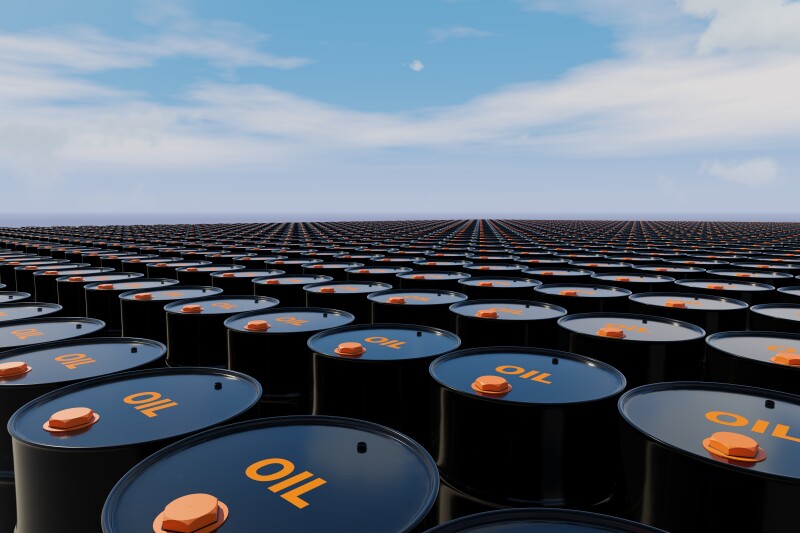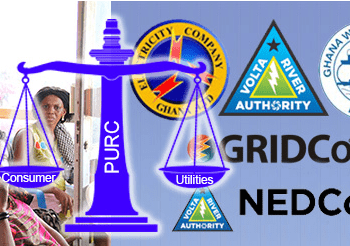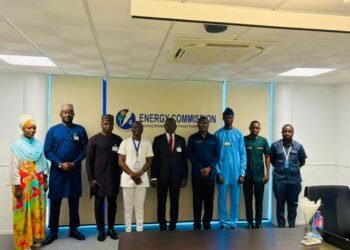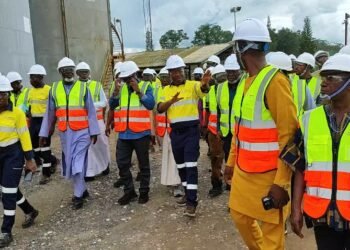Ghana’s crude oil production has fallen sharply below its early national projection of 500,000 barrels per day (bpd), with the country currently producing only about 125,000 bpd, according to Petroleum Economist and Political Risk Analyst, Dr. Theo Acheampong.
At current Brent crude prices of US$61.10 per barrel, Ghana’s total annual crude receipts are estimated at US$2.78 billion, with government oil revenue projected at roughly US$1 billion by year-end.
However, had production reached the planned 500,000 bpd target, government earnings could have exceeded US$11 billion, meaning Ghana is losing nearly US$8 billion annually in potential oil revenue.
Dr. Acheampong attributes Ghana’s underperformance to a seven-year freeze in new oil field development, citing regulatory uncertainty, policy inconsistency, and waning investor confidence in the country’s upstream petroleum sector.

“We don’t have any new field that has come on stream since 2016–2017 when the Sankofa field began production.
“For all the noise we make, it’s really just three fields Jubilee, TEN, and Sankofa sustaining output in the country.”
Dr. Theo Acheampong, Petroleum Economist and Political Risk Analyst
He pointed out that the lack of fresh exploration and drilling has left Ghana’s production stagnant, even as rival producers such as Namibia and Guyana attract record foreign investments through clearer policies and faster project development timelines.
“Several investors have told me they no longer want to touch Ghana because of uncertainty about fiscal and regulatory stability.”
Dr. Theo Acheampong, Petroleum Economist and Political Risk Analyst
The economist noted that recurring disputes over “forced unitisation” where companies are compelled to merge adjoining oil fields have also discouraged international oil companies (IOCs) from expanding or investing in new exploration projects.
Missed Economic Opportunities
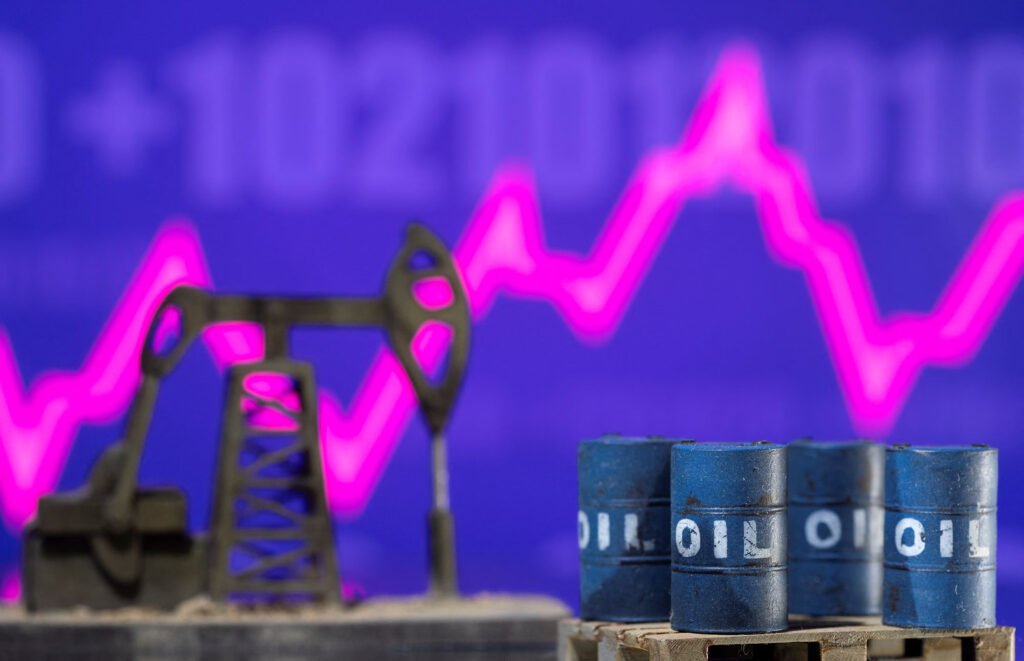
The production shortfall comes at a time when Ghana’s economy is under fiscal pressure, grappling with limited access to international capital markets and growing debt obligations.
The unrealised US$8 billion in annual oil income could have served as a crucial buffer, easing the government’s fiscal deficit and supporting foreign exchange reserves.
Energy analysts argue that sustained underperformance in the petroleum sector risks eroding one of Ghana’s most vital sources of revenue, especially as global demand for oil remains strong in the medium term despite the global energy transition.
Dr. Acheampong warned that without decisive reforms, Ghana risks losing its competitive edge in West Africa’s upstream market, noting that regional competitors are advancing aggressively.
“Namibia and Guyana are now attracting massive investor interest.
“Ghana, on the other hand, has fallen off the list of top destinations for upstream investment.”
Dr. Theo Acheampong, Petroleum Economist and Political Risk Analyst
Data from the Public Interest and Accountability Committee (PIAC) paints a troubling picture. Ghana’s crude oil production fell by 25.92 percent year-on-year in the first half of 2025, dropping from 24.86 million barrels in 2024 to 18.42 million barrels this year.
According to PIAC, the decline is primarily due to natural reservoir depletion, maintenance shutdowns, and operational inefficiencies at the three producing fields.
The report also warned that without new discoveries or enhanced recovery techniques, Ghana’s output could fall below 100,000 bpd by 2027.
Hope Amid Decline
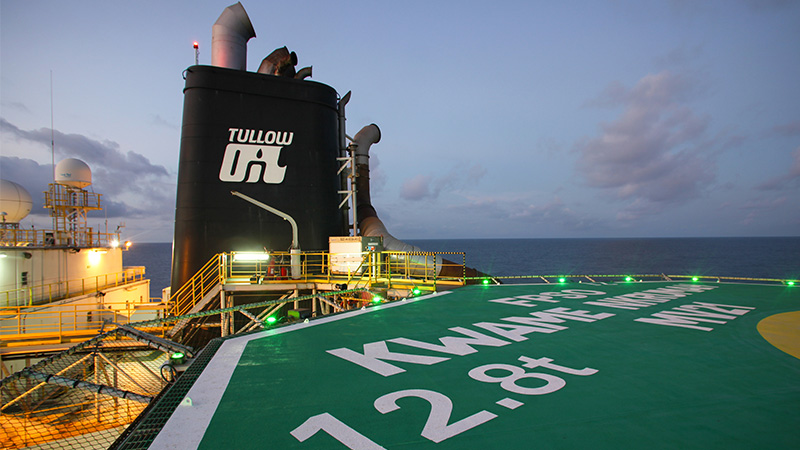
Despite the challenges, Dr. Acheampong remains cautiously optimistic that Ghana can reverse the trend. He believes the country still has a 20–30-year production window to fully harness its oil and gas potential, provided policymakers act decisively.
He outlined a comprehensive roadmap for recovery, including improving seismic data, enhancing asset management, integrating smaller fields into existing FPSO hubs, reforming fiscal frameworks, and strengthening local content linkages to stimulate industrial growth.
“There’s no silver bullet.
“We need to do the hard work to reverse the decline attract more investment, develop more fields, and build a stable regulatory regime.”
Dr. Theo Acheampong, Petroleum Economist and Political Risk Analyst
Dr. Acheampong emphasized that the next phase of growth will depend heavily on regulatory credibility and policy predictability, urging government agencies to rebuild trust with investors through transparency and consistency.
“If we can restore confidence in Ghana’s upstream petroleum governance, investors will return. But we must send a clear signal that Ghana is open for business again.”
Dr. Theo Acheampong, Petroleum Economist and Political Risk Analyst
The economist acknowledged ENI’s renewed commitment to invest US$1.5 billion in Ghana’s oil and gas sector as a positive step, though he cautioned that such investments must be accompanied by wider sectoral reforms to yield lasting results.
He also urged government to fast-track licensing rounds and improve geological mapping, particularly in the central and eastern basins, to uncover new reserves and attract exploration bids.
For now, however, Ghana’s petroleum sector remains constrained by policy inertia, aging infrastructure, and declining field output.
Without bold reforms and renewed investor engagement, the vision of a robust 500,000 bpd industry will remain elusive and the missed billions an enduring reminder of untapped potential.
READ ALSO: BoG’s $1.15bn FX Injection Sparks Clash with IMF and World Bank Over Cedi Stabilization



